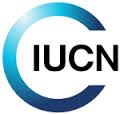Community / Land projects / Fair Finance Asia Phase 2
Fair Finance Asia Phase 2

€8736194.514
11/22 - 11/28
Actif
This project is part of
Implementing Organisations
Donors
Data Providers
General
Fair Finance Asia (FFA) is a regional network of Asian CSOs committed to ensure that financial institutions' funding decisions respect the social and environmental well-being of local communities. It is managed by Oxfam Novib and based on the Fair Finance Guide International (FFGI) Methodology seeking to influence financial institutions to adhere to ESG (Environmental, Sustainability and Governance) criteria in their investments. The overarching goal is that banks operating at national and regional level contribute to positive outcomes for people in Asia through their financing and investments while reducing negative impacts on the climate, environment, human rights and gender equality. The first phase of the program, 2018 - 2022, included eight countries, Thailand, Indonesia, Philippines, India, Vietnam, Cambodia, Pakistan and Japan. The reason for including Japan is that many Japanese banks invest in countries in Asia. Based on the positive results from phase 1, as well as the fact that FFA is in line with the priorities of the new regional strategy 2022 - 2026, Sida has decided to support a second phase. It covers five years and includes expansion to five new countries (Malaysia, Bangladesh, Lao PDR, Singapore and South Korea) and the regional influencing will focus two main themes; Just Energy Transition and Gender Lens Financing. The program has four result areas; 1) Financial institutions (FI) operating across the region increasingly adopt or improve sustainable finance policies, practices, and public disclosure. 2) Regulators and governments increase independent monitoring of FI policy, practice and accountability and transparency, and improve the regulation of FIs, including through mandatory regulation. 3) Regional financial sector actors take increasing actions to require and enforce improved standards for FIs’ policies, practices, accountability and transparency. 4) Strong and resilient civil society across the region effectively influences the sustainable finance agenda across the region, integrating a gender lens and community voice. Other actors have increased awareness and take increased action to influence the sustainable finance agenda. More information is available on the website: www.fairfinanceasia.org.
Objectives
The expected impact of the intervention is that: Financial institutions operating across Asia increasingly accelerate positive outcomes for communities and the environment through their financing and investments, while reducing negative impacts on the climate, environment, human rights, inclusion, gender equality, food security, and land rights. The intervention has five result areas and the following objectives... 1) Financial institutions operating across the region increasingly adopt or improve sustainable finance policies, practices and public disclosure. 2) Regulators and governments increase independent monitoring of financial institution policy, practice, accountability and transparency, and improve the regulation of financial institutions, including through mandatory regulation. 3) Regional financial sector actors take increasing actions to require and enforce improved standards for FIs policies, practices, accountability and transparency. 4) Stronger and resilient civil society across the region effectively influences the sustainable finance agenda, integrating a gender lens and community voice. 5) Other stakeholders (intermediary stakeholders) have increased awareness and taken more action to influence the sustainable finance agenda.




